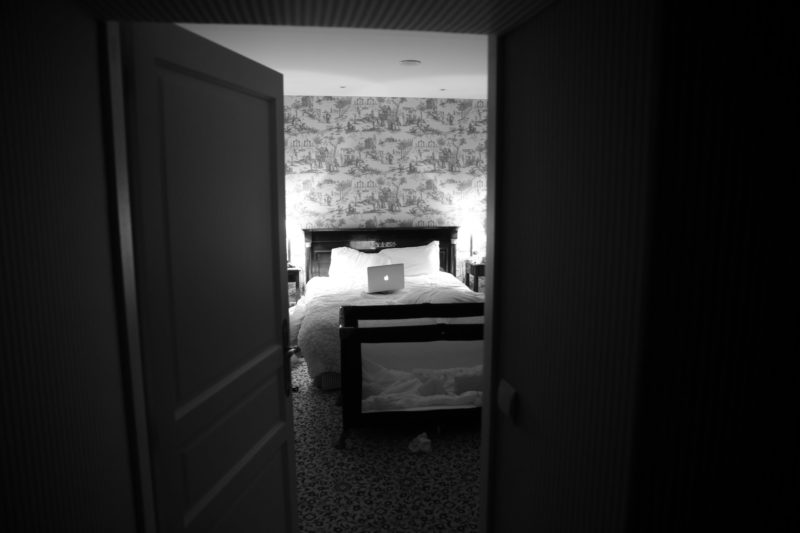As promised, this third post will help us to see the proverbial light at the end of the tunnel, no pun intended. We will learn how to change our poor sleep habits, which are usually caused by the modern world we live in. We can adapt!
I wonder if you agree that the most sobering take-away from my previous posts on sleep was that getting enough sleep at the right times may be the most important change that we can make, if we want to age well without the specter of chronic disease. But what does enough sleep even mean? Sleep experts’ research demonstrates that seven to nine hours is the best range for adults1How much sleep do we really need?. Let’s see how to make this doable.
We need to learn how to avoid the dreaded consequences of inadequate sleep as summarized in my first blog post on sleep2Just how important is sleep, anyways? and we also want to be able to attain all the benefits of restorative and healthful sleep, as listed in my second sleep post3The benefits of getting enough sleep It is definitely possible to change our sleep habits in order to both avoid those dreaded consequences and bring about a better health outcome, as we learn to age well.
I will show you that all of that is possible, without resorting to habits that mimic those of our ancestors, who had to conduct their lives according to the light or darkness that was available to them at various times of the day. That is, in the days before electricity.
Let’s start by having a look at all of our current obstacles to better sleep. This week’s post will focus on how artificial (mostly blue) light is not our friend:
- Many of us own cell phones, which are set to send us notifications. At all times. Let’s face it — we are hooked…
- Some of us watch movies in the evening. More blue light!
- The rest of us read with the(blue) lights on before falling asleep.
- The lights are always on in our homes, until the moment that we decide that it’s time to sleep.
- We often have no time to get outside during the day. We now know that our brains need to receive a signal from the retina that it is actually daytime. Think “Get outside!” — the only way for our brains to get that signal.
- This is a good time to be reminded that if our brains do not have the opportunity to send the correct signal (Think: “It’s daytime now”, when it’s actually daytime) to the rest of our body, we are setting ourselves up for a cascade of terrible chronic health consequences, not to mention other detrimental results, such as falling asleep at the wheel or making disastrous judgment calls on the job.
Some solutions to these problems:
Learn to manage our phones:
- Turn off all phone notifications three hours before bedtime.
- If three hours seems insanely long to you, brush up on my advice on habit formation, and start small. Say, 15 minutes earlier. Then build up gradually. Remember: baby steps! What else could you be doing that would take your mind away from that phone?
Buy some new glasses:
- Wear blue-light blocking glasses4https://www.health.harvard.edu/staying-healthy/blue-light-has-a-dark-side whenever the lights are on at home at night. These filters will convince our brains into thinking that it’s nighttime because the confusing light will be limited. These glasses are relatively cheap and super effective. They even make ones that fit over regular glasses.
Try something new:
- Go to bed and wake up at the same time each and every day, as the brilliant Matthew Walker advises5Matthew Walker, PhD. Why We Sleep (New York: Simon & Schuster, 2017), p. 293.
- Once again, I invite you to think in terms of baby steps, and gradually choose a time that makes sense, then subtract 15 minutes from your current bedtime (Q: Why am I guessing that you’re going to bed too late? A: Been there, done that…) and spend a few days at that bedtime. Then go to bed 15 minutes earlier than that for a few more days. And so on. You get the drift.
Move out the electronics:
- Keep all electronics out of the bedroom. They are getting in the way of our aging well. Our bedrooms should be used for sleep. Or sex. That’s it. Arguments, conversations, phone calls, knitting, crossword puzzles, reading, watching movies, finishing the project that’s due in the morning, lying awake ruminating — find another room for those.
- Your brain will thank you because you’ve stopped giving it confusing messages. It should clearly understand that the bedroom is where you want to fall asleep. So that you can.
Buy some new sleep aids:
- If you find that streetlights keep you awake, the cheapest remedy for that is to wear an eye mask that blocks out all light when you’re asleep. On the other hand, a more costly remedy might be to get blackout shades or curtains for your windows. Be extra sure that the sides don’t let in any light. You don’t even want to see your hand in front of your face.
- By the way, the lights from our alarm clocks or radios can disrupt our circadian rhythm, too. Therefore, either turn them around so that they’re not visible when you’re lying in bed, or find clocks with no lights.
- While you’re turning off the lights, you might want to check if your lightbulbs are LED, fluorescent, or incandescent. The first two are mostly blue light, so you definitely want to be turning them off or blocking them with those eyeglasses I mentioned earlier. Incandescent bulbs emit very little blue light, so you may be safe with them staying on. Experiment to find out!
Get two new apps — for your phone and your computer:
- Finally, there are apps for computers and phones that reduce the amount of blue light. One is f.lux, and you can get it here. One warning— one recent study showed that the equivalent app that is used for smartphones, Night Shift, did not have any effect on quality of sleep6https://www.sciencedirect.com/science/article/abs/pii/S2352721821000607 The resulting conclusion is that we should turn off all phones and computers at least an hour before bedtime.
I hope that these tips on how to navigate our lit-up world have been helpful. By adjusting our habits to create the best outcome for ourselves, we can succeed in attaining better sleep. Then, we can be sure to improve our health outcomes as we age.
My next post will look at the relationship between our food and drink choices and our ability to sleep well. You can also look forward to finding out how to fall asleep more easily.
References:
- 1
- 2
- 3
- 4
- 5
- 6
Trying to change our sleep habits on our own isn’t always easy. Please contact me for a complimentary, no-obligation, introductory strategy session where you will find out if having a coach to support you in your desire to live longer and better is that magic bullet which will move you towards your goals, with less frustration.
As always, please feel free to email me and let me know what your own particular sleep issues are. All questions are welcome. I look forward to hearing from you!
- 1
- 2
- 3
- 4
- 5
- 6




